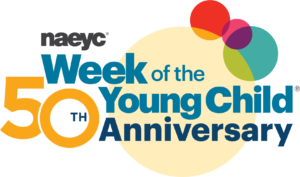There is a longstanding agreement amongst research in many domains that early childhood is a vital time of growth and development for children. Even more solidified and well known within the field of developmental science is the finding that children who attend and receive quality early learning experiences gain many beneficial outcomes.
Contrary to popular belief, there is much more potential for a child’s brain development other than the acquisition of simple skills when they are given quality early learning experiences and secure relationships.
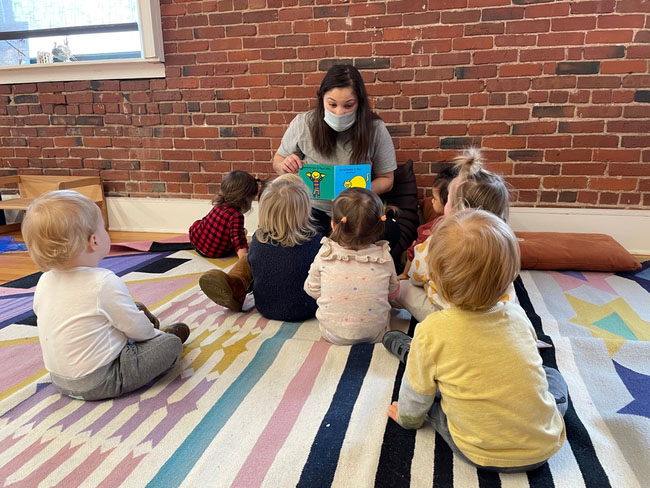
Children who receive high quality early learning:
- Are more likely to graduate from high school
- Have higher academic attainment in math and reading
- Attain higher literacy
- Develop a larger vocabulary
- Have significantly higher language development
- Have more advanced cognitive development
- Gain higher social competencies through preadolescence
- Have reduced conduct problems
The Early Education Dilemma
In recent years, data has shown that many families are faced with the tough decision of providing their children with a high quality child care experience. While the desire and necessity may be there, the high cost puts this out of reach for most people. Sending children to childcare or preschool oftentimes brings up potential sacrifices and even economic insecurity. While there are supports built in to our system for early education, it proves to be lacking as it is underfunded and restricted in access. As a result, these supports do not meet the needs of most families.
This upcoming week is a special week observed nationwide through the NAEYC (National Association of Education of Young Children) to celebrate the young children in our lives and reflect on how we are meeting their needs to promote their early learning and well-being. The Week of the Young Child® is the perfect opportunity to rally support and bring awareness of the current issues in the early education space. This is our call for an increase in the public’s investment in early childhood, not just financially, but also in terms of urgency.
Help us spread the word!
On this blog post we invite you to celebrate your children with us and help us spread the word about the importance of Early Learning Education. Below we share with you some developmentally appropriate activities you can do with your child this upcoming week to celebrate, and while you are celebrating, don’t forget to take many pictures and tag us at @ethoslearn and #earlyeducationmatters
Music Monday
When children sing, dance, and listen to music, there are many physiological happenings:
- Dopamine is released in the brain, improving their mood
- Their heart and respiratory rates are stabilized
- Their language and early literacy skills are developed
- Gross motor skill usage is encouraged with active participation
- They have an opportunity to learn about emotions
Try these musical activities with your child:
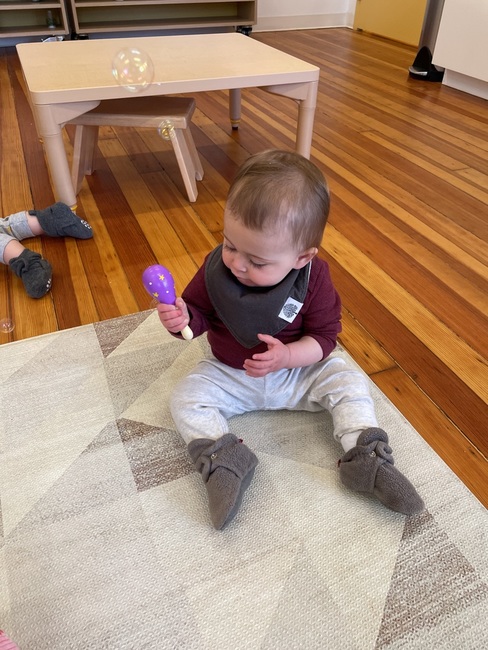
Infants
Put out different types of instruments such as drums, shakers, and bells, so infants can explore them and compare the different sounds they make. Name the instruments and demonstrate how to hold each one. Let children explore the different volume levels for each. You can also make an instrument from beans in a bottle (Scholastic)
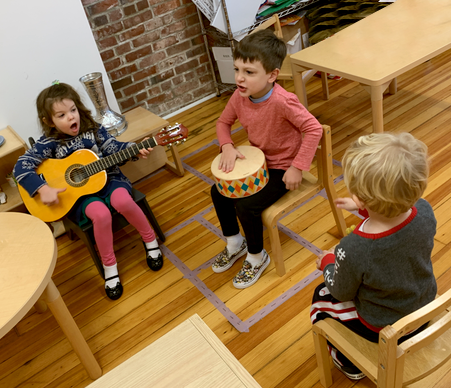
Toddlers
Dancing and singing is not a new practice for toddlers! Take their musical inclinations a step further and create a band! Everyone in the family can play a separate instrument!
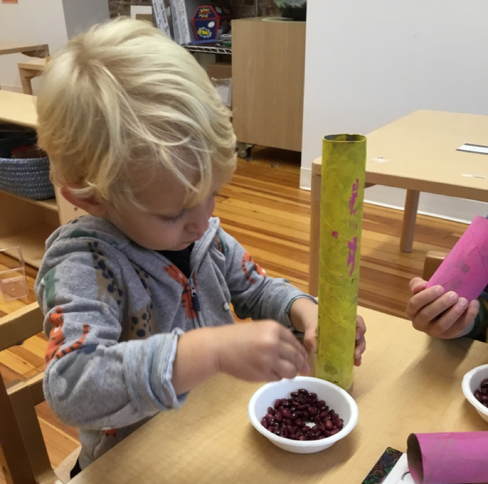
Preschool
Creating your own instruments is a happy marriage of music and STEAM learning. Using household items or recyclable items, your child can create their own shakers, drums, or even guitars! Have a drum parade or put on a concert.
Tasty Tuesday
“Cooking allows for practice of a lot of different skills like math, literacy skills, science, and more.” – NAEYC
In a previous post, we listed a couple of ideas you may like to do, such as Cheesy Enchiladas.
For some extra activities, look below:
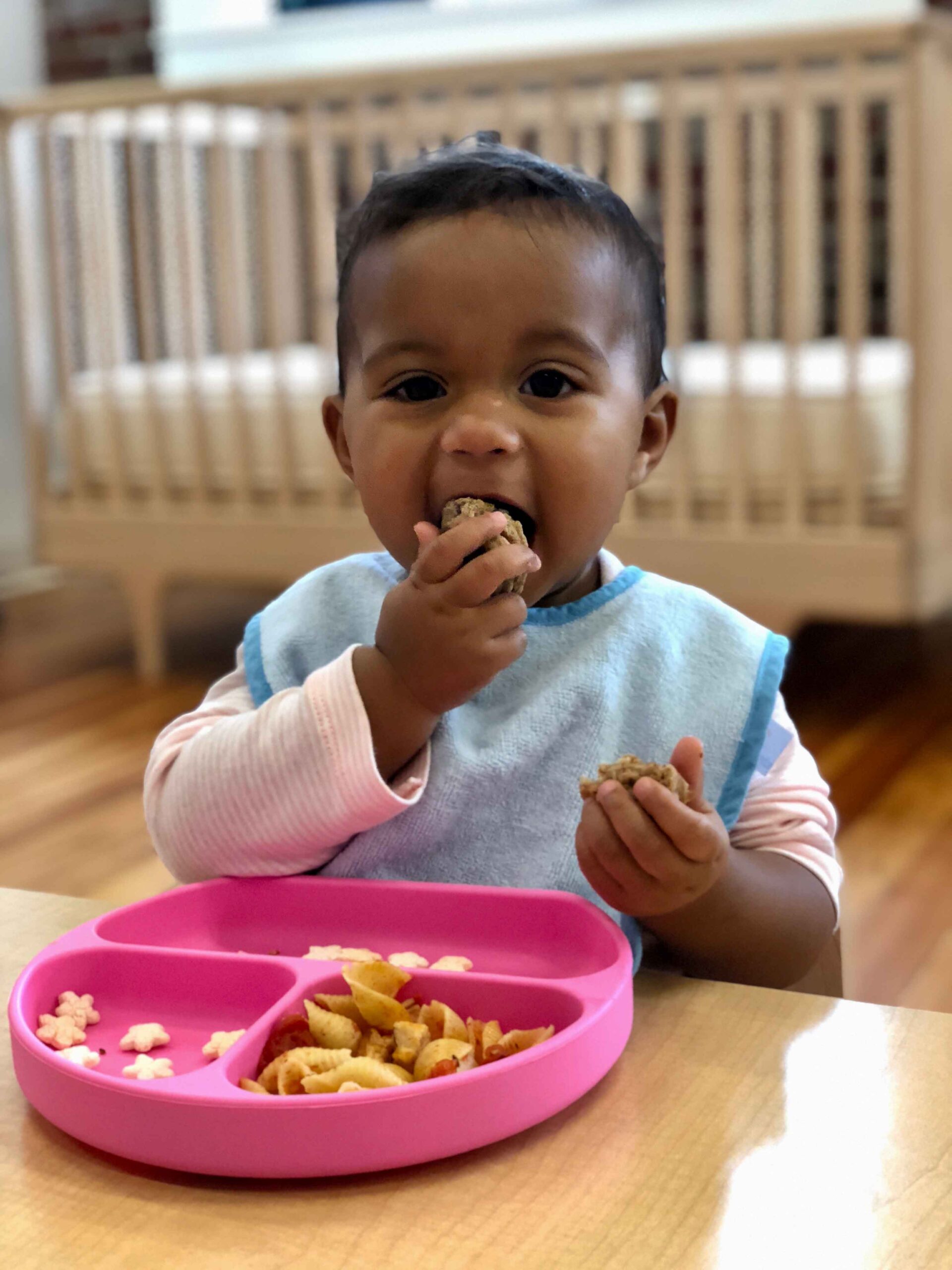
Infants
Let your baby watch you in the kitchen. This is great for visual tracking practice and they can intake all the wonderful smells that drift in the kitchen, allowing for an aromatic, sensorial experience.
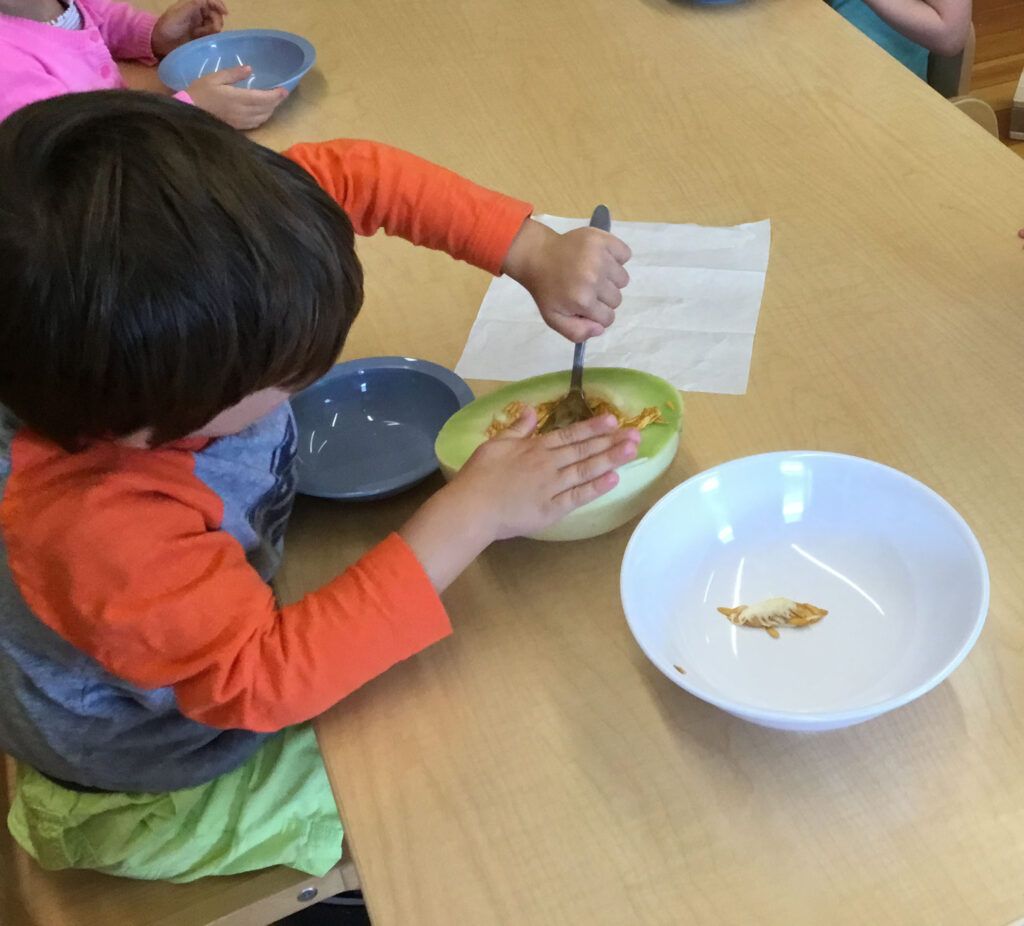
Toddlers
Toddlers love doing “adult” actions, including helping in the kitchen! Have them help out in putting together their snacks! Try making a rainbow with fruits and veggies of all different colors!
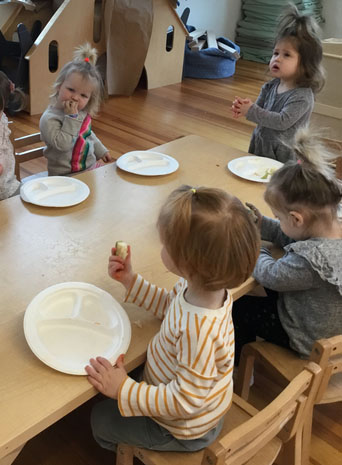
Preschoolers
Taste testing! Preschoolers can be very critical of foods they eat: they know exactly what they like (& don’t like). Taste different types of apples or foods to have some sensorial fun.
Work Together Wednesday
When children build, they get a chance to engage in and build their problem solving and math skills. Using any materials (like cardboard boxes, blocks, wood, and legos), the possibilities are endless!
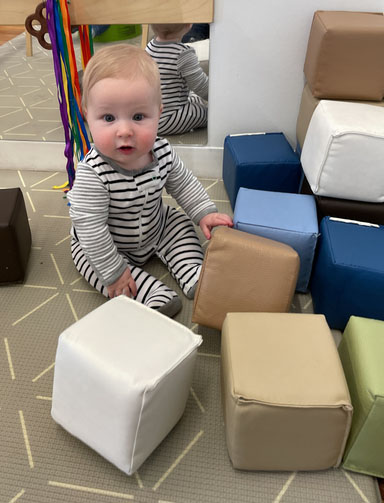
Infants
Squishy blocks are great for practicing stacking and seeing tumbling!
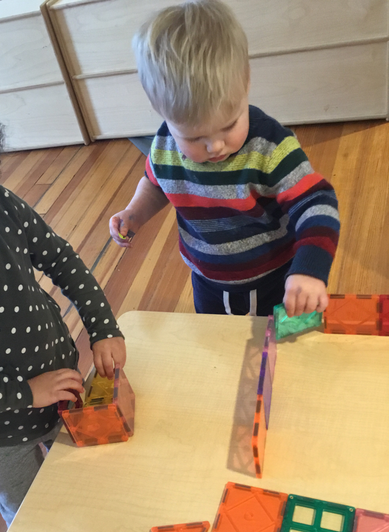
Toddlers
Build with your child and encourage planning! Plan with your child what and how they are going to build! (Will they use magnet tiles or wooden blocks- which is better for what they are choosing to build? What shape will their building be?)
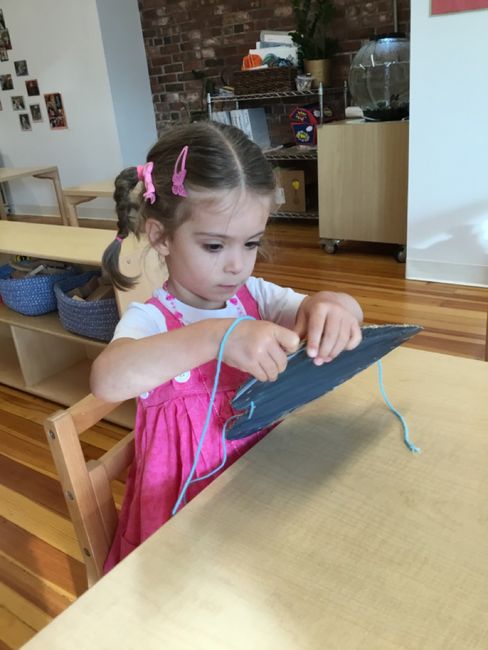
Preschoolers
Learn to sew! Sewing is a type of building and learners can practice sewing with yarn, a plastic needle, and flexible foam or a rigid material like cardboard with pre punched holes.
Artsy Thursday
Open-ended, creative art experiences nurture creativity. Sprinkle in some open ended-questions as well, and you will have inspiration for purpose as well as critical thinking. When it comes to art, the best way to pick an art activity is to pick one that they can do independently (after learning it of course) and one that’s process based rather than results based – let them create! There’s no right and wrong in open-ended art!
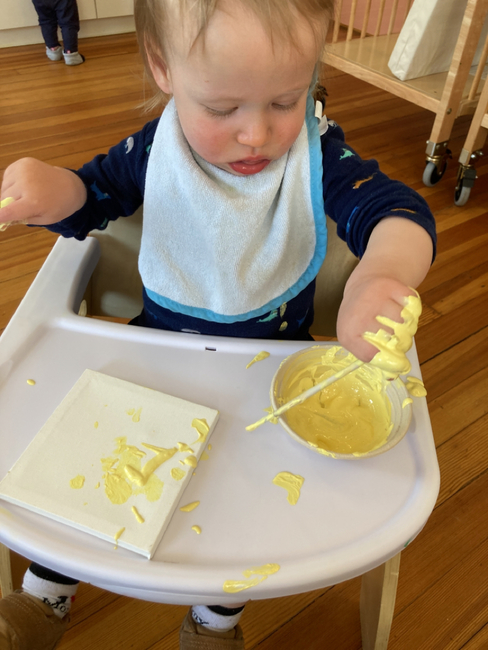
Infants
Let your child paint and explore with edible paint!
All you need is yogurt :
- place 3 drops of food coloring into a bowl of natural baby yogurt.
- Mix with a spoon.
- Let your child feel the texture and discover what happens when touching the colored yogurt.
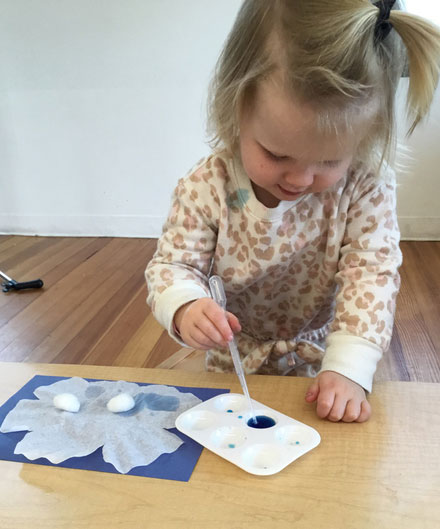
Toddlers
An alternative to painting with brushes, pipette painting provides opportunities to practice fine motor skills in a unique painting process. Furthermore, you can provide your child an array of objects to let them decide what else can act as a paintbrush!
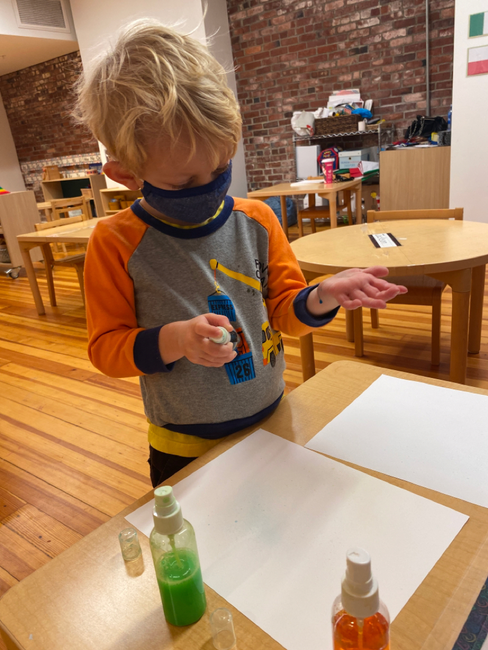
Preschoolers
There are many ways to utilize paint! One way is through mixing paint and water and putting it in a spray bottle. What art creations will your child spray up?
Family Friday
Family time is THE BEST time for many reasons!
Family is the child’s largest way to understand and learn about the world. Family Friday is all about your family! Participate in activities that you like to do as a family whether that is outdoor activities or spending time at home! What are some ways your family gets to spend time together?
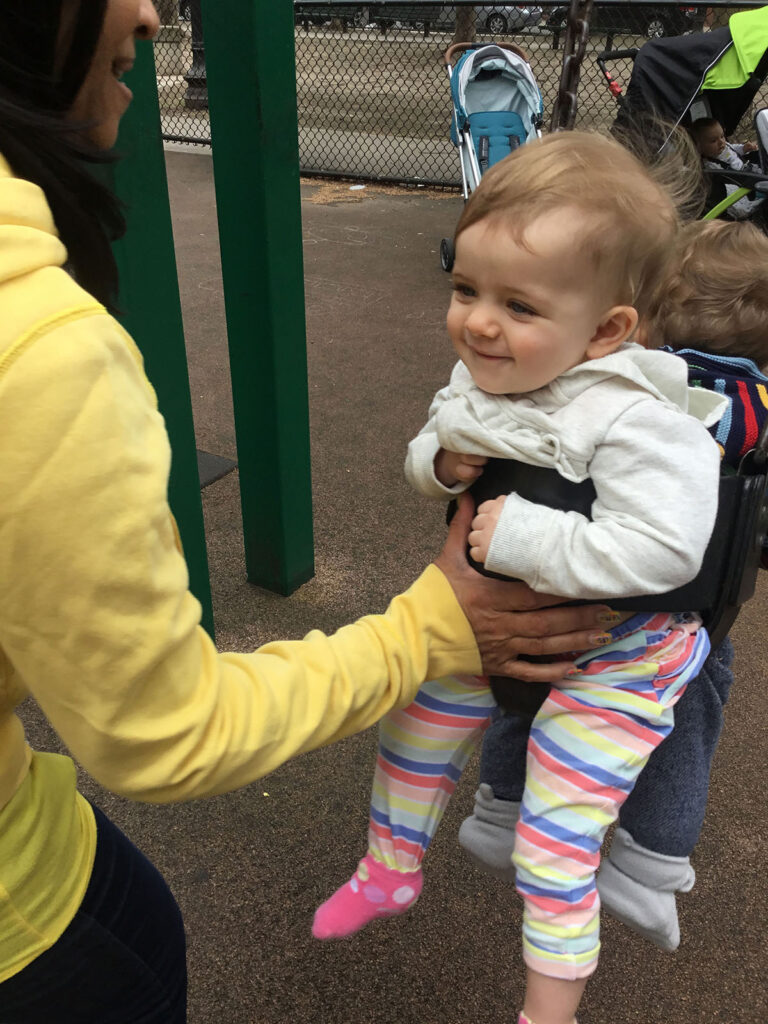
Infants
Offer interesting objects to your child or give them a massage. Any sort of event or activity that allows for a back and forth interaction is a special time for your baby.
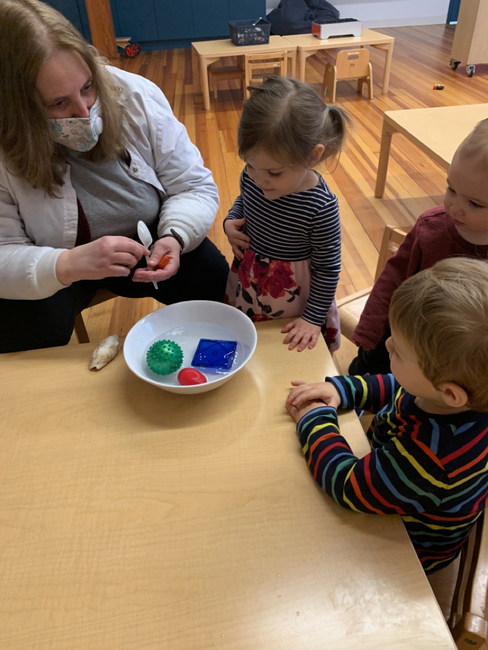
Toddlers
Share some storytelling time! It doesn’t always require objects, money or space (and has its own potential for growth and benefits- see here)
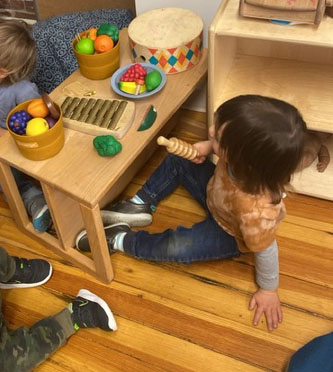
Preschoolers
Grocery shopping can be a joint effort! Write the shopping list together and then ask your preschooler to help you find all the items on the list.
The activities listed above are a few ways your child can engage in and enjoy their development! As this next week comes by, take a moment to remember the joy our children bring to us and the coveted responsibility we hold towards them. The best way to do this is to follow their lead! Take a few moments to spend with your child, engaging in what you notice grabs their interest. The time you spend in the shared activities will be treasured by both you and your child for years to come!
We adore your children and are proud to serve and nurture their growth, happiness, and learning. Happy Week of the Young Child®!
Till Next Post,
Aleezeh Makani
Ethos Early Learning Center Educator
Ethos Early Learning Center offers year-round child care and early childhood education for children ages 0-5 in South Boston, Ma. Request more information about our programs at ethoslearn.com/moreinfo
The list below contributed to the suggestions above and also offer additional ideas and resources for you and your family:
A year of play. (n.d.). Retrieved February 26, 2021, from https://www.zerotothree.org/resources/1090-a-year-of-play
Andersson, B. E. (1989). Effects of public day-care: A longitudinal study. Child development, 857-866
Barnett, W. S. (1995). Long-term effects of early childhood programs on cognitive and school outcomes. The future of children, 25-50.
Caparros-Gonzalez, R. A., de la Torre-Luque, A., Diaz-Piedra, C., Vico, F. J., Buela-Casal, G., Dowling, D., & Thibeau, S. (2018). Listening to relaxing music improves physiological responses in premature infants. Advances in Neonatal Care, 18(1), 58-69.
Center on the Developing Child (2010). The Foundations of Lifelong Health (InBrief). Retrieved from www.developingchild.harvard.edu.
Digitale, A., Armitage, A., & Goldman, A. (2018, May 22). Forget perfection and just cook for your KIDS, says new book by stanford author. Retrieved February 26, 2021, from https://scopeblog.stanford.edu/2015/10/28/forget-perfection-and-just-cook-for-your-kids-says-new-book-by-stanford-author/
Early childhood care and education. (2017, November 23). Retrieved April 05, 2021, from https://en.unesco.org/themes/early-childhood-care-and-education
Early Learning Factsheet 2019 (Publication). (2019). https://cdn.americanprogress.org/content/uploads/2019/09/12065748/Massachusetts.pdf
Flom, R., Gentile, D. A., & Pick, A. D. (2008). Infants’ discrimination of happy and sad music. Infant Behavior and Development, 31(4), 716-728.
Hough, L. (2018). Mangia, Mangia – just not alone. Retrieved February 26, 2021, from https://www.gse.harvard.edu/news/ed/18/01/mangia-mangia-just-not-alone
Lindeman, K. W., & Anderson, E. M. (2015, March). Using Blocks to Develop 21st Century Skills. Retrieved March 15, 2021, from https://www.naeyc.org/resources/pubs/yc/mar2015/using-blocks
McCoy, D. C., Yoshikawa, H., Ziol-Guest, K. M., Duncan, G. J., Schindler, H. S., Magnuson, K., … & Shonkoff, J. P. (2017). Impacts of early childhood education on medium-and long-term educational outcomes. Educational Researcher, 46(8), 474-487.
Peisner-Feinberg, E. S., & Burchinal, M. R. (1997). Relations between preschool children’s child-care experiences and concurrent development: The Cost, Quality, and Outcomes Study. Merrill-Palmer Quarterly (1982-), 451-477.
Yoshikawa, H. (1995). Long-term effects of early childhood programs on social outcomes and delinquency. The future of children, 51-75.Zosh, J. N., Hopkins, E. J., Jensen, H., Liu, C., Neale, D., Hirsh-Pasek, K., … & Whitebread, D. (2017). Learning through play: a review of the evidence. LEGO Fonden.
